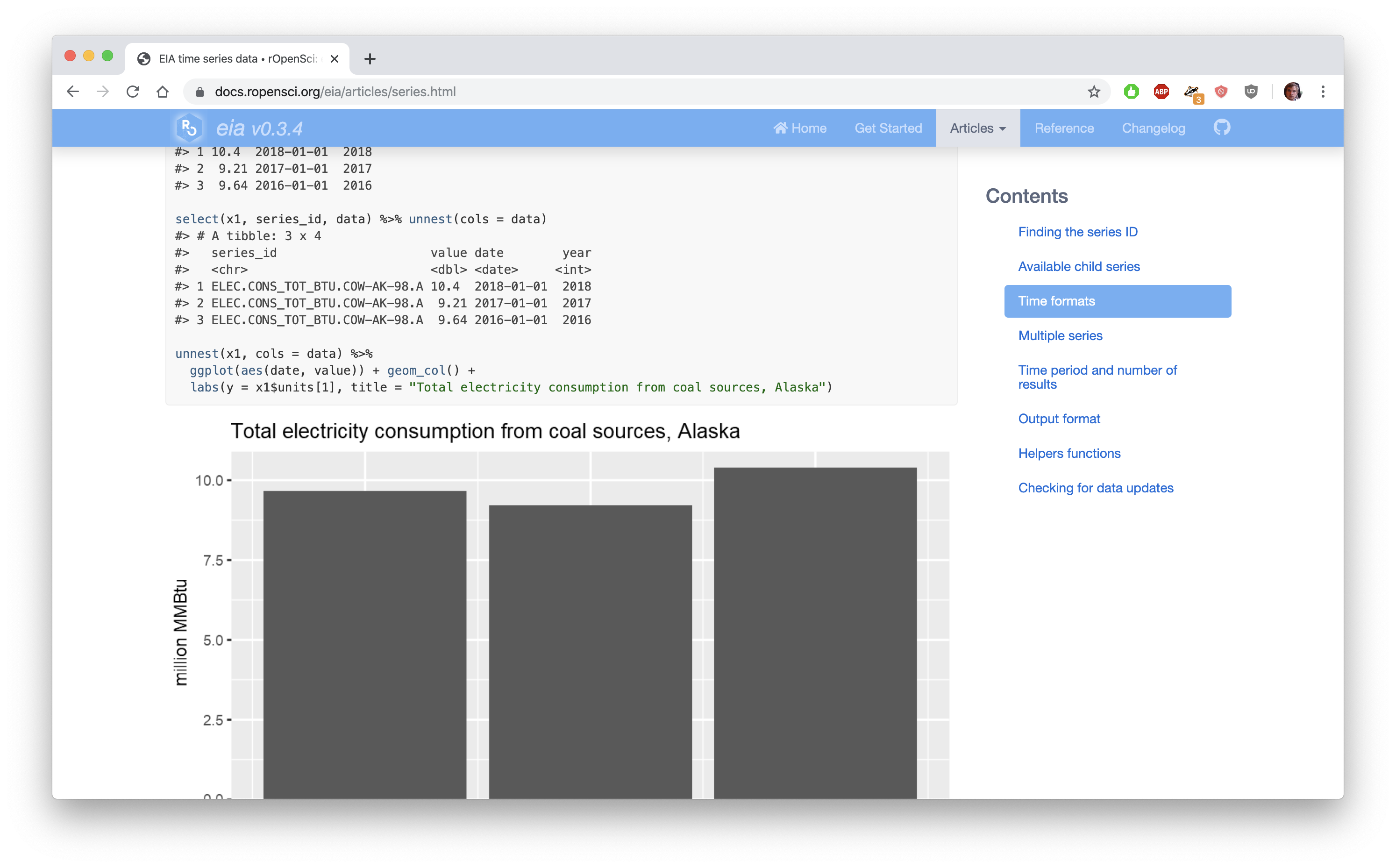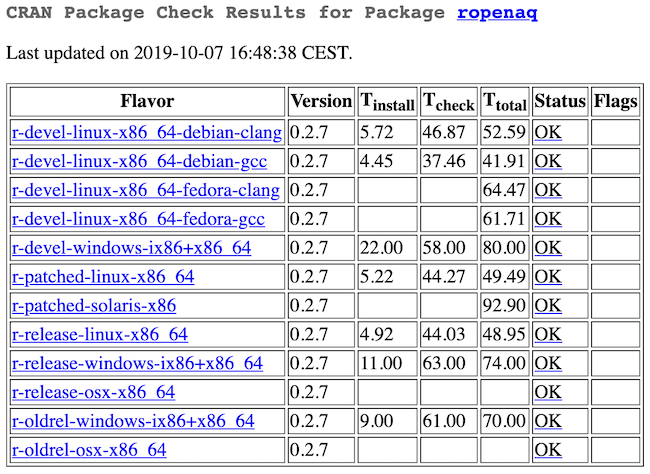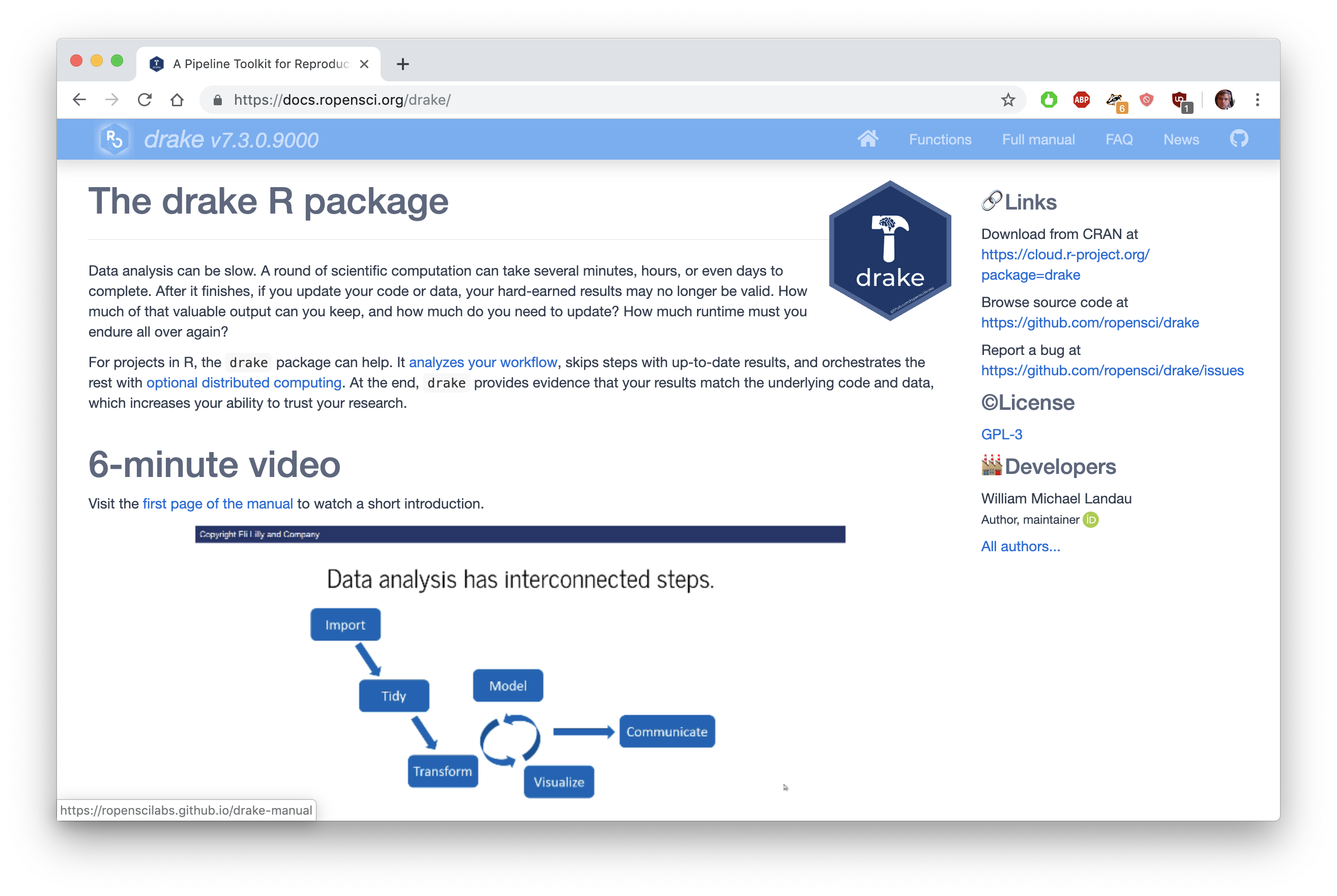
As of earlier this year, we are now automatically building binaries and pkgdown documentation for all rOpenSci packages. One issue we encountered is that some packages include vignettes that require some special tools/data/credentials, which are unavailable on generic build servers.


